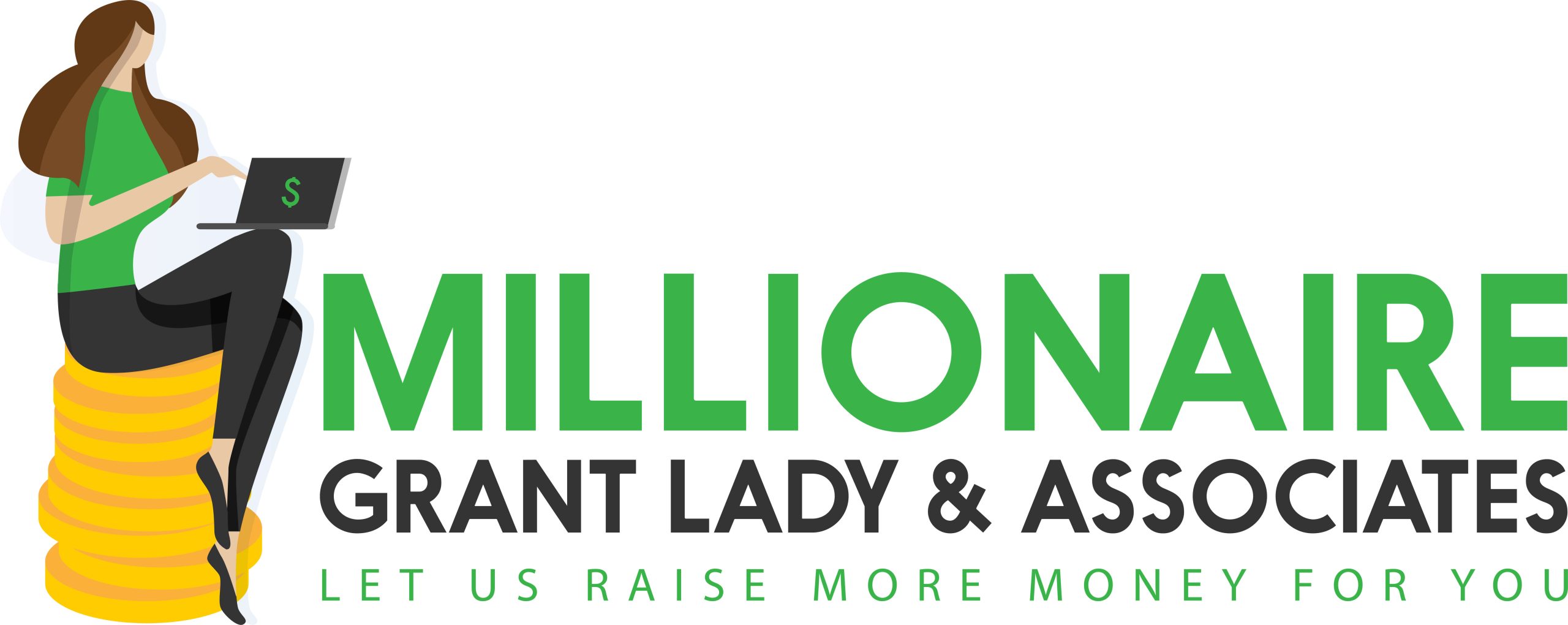On April 23, 2024, the U.S. Department of Labor (DOL) announced updates to the minimum salary for salary-exempt employees. This change affects nonprofit organizations by increasing the overall budget for staff salaries. This change comes at a time when nonprofits are already feeling the crunch of inflation. Everything costs more, from gas to rent to food. This change might mean more nonprofits see budget shortfalls in the coming year. Foundation funding for staff could be used to bridge this gap in funding.
Alex, founder of Millionaire Grant Lady and Associates, has been working with nonprofits of every shape and size for more than 15 years. In that time, she has seen the industry go through many changes, and she has helped many organizations weather and grow through these changes. Alex can help you, too. Want to learn more? Schedule your free call today.
Read this article to discover:
- Key changes to the salary exempt thresholds
- How nonprofits can address the salary increase
- How will this change impact foundation giving
- How a grant writer can help
- Conclusion
Key Changes to the Salary Exempt Thresholds
Effective July 1, 2024, the minimum salary for exempt employees increased to $43,888 per year. The DOL ruling also states that effective January 1, 2025, the salary threshold will increase to $58,656 per year.
For highly compensated employees, the DOL ruling states that their minimum salary threshold is $132,964 per year as of July 1, 2024. On January 1, 2025, this amount will increase to $151,164 per year. Read this article to learn more about these changes.
Currently, there are many injunctions filed to stop this change from happening. This makes it hard for nonprofits to know how to plan for these increases. However, regardless of the specific timing of this salary adjustment, nonprofits will likely be required to pay staff a higher minimum salary in the near future.
Since nonprofit organizations often run on tight budgets, this increase in staff costs will undoubtedly put further strain on already stretched budgets. Nonprofits must plan now for how they will adjust to these changes to ensure they can remain in compliance with DOL regulations and provide essential services to their community.
How Nonprofits Can Address the Salary Increase with Foundation Funding for Staff
Nonprofits need to evaluate their current exempt employee salaries to determine how many fall below the required minimum thresholds for 2024 and 2025.
If you increase the salaries of your lowest paid salary staff, then you have to increase salaries for everyone that made more than them (otherwise, now senior staff are paid the same as junior staff). This ruling will then increase personnel costs not just at the “bottom” but all the way up. This will also mean that the cost for full-time grant writers will go up.
With staff salaries increasing, nonprofits will be looking for ways to cover this additional cost. Foundation grants can provide the vital funding nonprofits are looking for through:
- General Operations Grants: Since the COVID-19 pandemic, we have seen foundations move more towards offering operating funds as they seem to be more aware that nonprofits need flexibility in their funding to be able to deliver services and keep the lights on. General operations grant funds can provide needed foundation funding for staff.
- Capacity-Building Grants: A capacity-building grant can provide increased salary support for key positions if your organization is growing and evolving.
- Program Grants: When a foundation offers a grant for a program, the program budget can include the wages of the staff whose work contributes to the program.
Increasing foundation grant funding can help cover the additional salary costs brought on by this DOL regulatory change.
How Will This Change Impact Foundation Funding For Staff And Overall?
As inflation has increased over the last few years, more nonprofits need more money to fund their work. This has led foundations to receive more applications than ever before from more very worthy nonprofits.
We have seen some foundations shift their giving style tremendously in this same time frame. Some foundations have adopted more complex applications that require more documentation and analysis to complete. Some foundations have stopped accepting unsolicited applications. Other foundations have adopted very tight application windows. In fact, one foundation only accepts applications for 12 hours on one day a year.
This wage increase will result in more nonprofits needing more funding. Let’s say this change increases every organization’s budget by #% to comply with this new law. (Let’s peg that number at 10%). Now, every organization has to raise 10% more to keep base-level staff–not grow their programs but just sustain their programs. The foundations and philanthropy, in general, don’t automatically have 10% more to give to meet this demand–so there will be 10% more in requests than there is in money than normal.
Ultimately, this change will result in more competition for the grant funds nonprofits often rely on to deliver services.
Do You Need to Hire a Grant Writer?
As the landscape of foundation giving becomes more complex and more competitive, nonprofit staff who already wear so many hats may have difficulty keeping up with the changes and meeting the more intense application and reporting requirements of foundations.
Unfortunately, when nonprofits are facing wage increases for their existing staff, they may not have the resources to hire a full-time grant writer—which can cost almost $100,000 per year. Read our article here to learn more.
Thankfully, there is another option. Instead of hiring a full-time grant writer or doing it themselves, nonprofits can hire a grant consultant.
Benefits of hiring a grant consultant:
- Immediate access to skilled, certified grant writer
It can take 6 months or more to hire a full-time grant writer, but you can start working with a grant consultant today. - Work with a grant consultant with a proven track record of success
Millionaire Grant Lady and Associates has secured more than $103 million in funding for our clients. This includes winning organizations their first foundation grants, their first federal grants, and multi-year, multi-million-dollar awards. With our proven track record of success, we can help your organization win more funding, too. - The cost of a grant consultant is often a fraction of the cost of a full-time grant writer
A full-time grant writer may cost your organization nearly $100,000 per year, when you account for retirement and benefits. With a grant consultant, you select the package that fits your organization’s needs and budget. Click here to see our prices or to receive a price sheet for our tailored services. - Reduced workload for already overloaded staff
Our typical client spends less than 2 hours on-boarding with us and less than 2 hours a month working on grants in months when grants are being submitted. This means more time back in your busy day.
By hiring a professional grant writer, you can save time and money, while increasing grant funding to make this critical investment in your staff and services.
Conclusion
Organizations must work to understand these DOL changes now so they can plan ahead and grow through this change.
Are you ready to learn more about how the Millionaire Grant Lady and Associates team can help you grow funding for your organization? Schedule your free consultation call today.



